#they haven’t played with brazil yet
Text
The problem with working on my own schedule is trying to convince myself that my schedule needs to include some hours of work
#yes this is about me wanting to watch world cup games instead of read and catagorize spreadsheets#I wanna see brazil play!! I haven’t even gotten to watch a single one of their games yet!!!#ughhhhhhhhhh#world cup 2022
12 notes
·
View notes
Text
Now, let’s look at another talking point here:
Spurs castaway Juan Foyth just won a World Cup.
Lisandro “Too Short For The Premier League” Martinez just won a World Cup.
5’7” Lionel Messi (my height) just won a a World Cup and is cemented as the GOAT.
Alexis “He Plays For Brighton” Mac Allister just won a World Cup.
Angel Di Maria, considered by some a Manchester United flop, just won a World Cup.
Lionel Scaloni from Pujato, a small town in Santa Fe Province, lost to Liverpool in the FA Cup final when he played for West Ham (I remember that), was only played once in the 2006 World Cup as a player, didn’t even make the shortlist for FIFA’s Best Football Coach award after winning the Copa America against Brazil in 2021, JUST WON A WORLD CUP.
This was the team for second chances, for the people who were written off, underestimated, never given a chance, doubted or were just late bloomers. This was the team for everyone who was ever told they can’t do it because they’re “too this” or “too that,” or because they “haven’t yet” or “never did.” This was the underdogs’ team. 🙌🏾
🇦🇷🇦🇷🇦🇷
#tfd#underdog for life#Argentina#world cup 2022#wc22#soccer#football#futbol#underdogs#lionel messi#angel di maria#alexis mac allister#lionel scaloni#lisandro martinez#licha martinez#manchester united#real madrid#paris saint germain#juan foyth#spurs#tottenham#villarreal#la liga#premier league#ligue 1#pujato#santa fe#west ham#Newell’s old boys#world cup final
610 notes
·
View notes
Text
Itoshi Sae’s trivia (source: twt & Egoist Bible).
"I'll see with my own eyes what kind of FW (idiot) will be born in Japan."
☆ Character's colour: Adzuki bean color (reddish-brown).
☆ Nickname: ‘Japan’s Treasure’.
☆ Birthday: 10th October.
☆ Current age: 18 (3rd year of high school)
☆ Zodiac: Libra.
☆ Birthplace: Kamakura City, Kanagawa Prefecture.
☆ Family: Mother. Father. Himself. Younger brother.
☆ Current height: 180 cm.
☆ Foot size: 26.5 cm
☆ Dominant foot: Left foot.
☆ Blood type: A.
☆ Starts playing football: At age 1. “Before I knew it, I was playing soccer.”
☆ Team before returning to Japan: レ・アール下* Youth FC.
☆ Favorite food/drink: Salted kelp tea (shio-kombucha). “Because I can go back to 0.” (meaning he feels refreshed after drinking it)
☆ Disliked food: French fries. “It’s deadly delicious but it’s deadly to my health.”
☆ Favorite animal: Seagulls. “I like migratory birds that doesn’t stay in one place.”
☆ Favorite season: At the end of summer. "It seems that the world is starting to get lonesome."
☆ Favorite football player: Álvaro Recoba. “The left footer that casts a rainbow (perfect curve) on the pitch.”
(Sae was referring to Alvaro quotes: “If today's game is on a rainy pitch, I'll draw a rainbow with my left foot.”. Álvaro is known for his curling-free-kick.)
☆ Favorite music: ‘Mercury’ by tofubeats ft. Seira Kariya. “I listen to this to cool down.”
☆ Favorite manga: Gegege no Kitaro.
☆ Favorite movie: Taxi Driver. “This De Niro is the coolest.”
☆ Favorite TV show: Chibi Maruko-chan. “It reminds me of home.”
☆ Favorite brand: “All of my sponsors. They know they're not crazy for betting on me, they have good eyes.”
☆ Hobby: Analysing data of football players and teams. “It’s easier to see the numbers in visualized data.”
☆ Mushroom shoots vs Bamboo shoots: “Depends on the mood.”
☆ What goes best with rice : Salted kelp (shio-kombu). “They don’t have it in Brazil, so I asked my parents back home to send some here.”
☆ What makes him happy: “A play beyond my imagination.”
☆ What makes him upset: Being forced to carry Japanese soccer on his back. “I’m talking about you guys.”
☆ What he thinks his strength is: He has flat ways looking at things. (meaning he look at things objectively) "People often calls me dry**, but who cares?"
☆ What he thinks his weakness is: The fact that he doesn’t know anything else other than soccer. “You guys shouldn’t live this way.”
☆ Favorite/Best subject: “I don’t know since I’ve only focus on soccer and didn’t pay attention in classes.”
☆ What made him cry recently: “Like I'd tell you, idiot.”
☆ Usual sleeping time: 8 hours (7 hours sleeping + 1 hour nap)
☆ Place he washes first when taking a bath: His bangs’ hairline.
☆ Fixation: Buttocks. “You’ll know an athlete's ability by the shape of their buttocks.”
☆ Number of chocolates received from previous Valentine: Around 2000. “That’s what my manager told me.”
☆ The first time he got confessed to: “I don’t remember which one was the first, octopus.” (here, octopus is just an insult like 'idiot' or 'fool', etc.)
☆ What will he do if received 100 million yen: “I’m not interested in such small amount of money.”
☆ At what age he stops receiving presents from Santa: At age 10.
☆ What was his last wish from Santa: “My own talent that I haven’t yet seen.”
☆ How he spent his holiday: Gazing at the sea.
☆ What will he do during his last day on Earth: Give the world's best striker the world's best pass.
*Not sure about the exact pronounciation but the most of the translation says 'Les Halles'.
** In Japan, there are terms called ‘dry person’ & ‘wet person’. ‘Dry person’ is someone who can think rationally without being overwhelmed by emotions and because of their calm demeanor, they are thought to be cold and unapproachable. ‘Wet person’ is the opposite of ‘dry person’.
note: i want to apologize in advance for any mistake made in the translation!
#blue lock#itoshi sae#trivia: itoshi sae#trivia: profile#bluelocksource#trivia#to those who reblog before changes made i'm really sorry#there was no info on his 'visual acuity'#he doesn't have bad eyeseight#really sorry about that#admin han#our translation
165 notes
·
View notes
Text
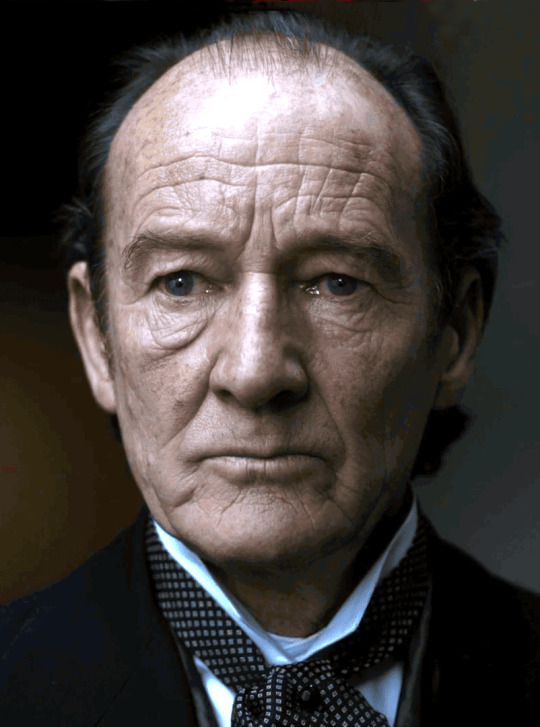
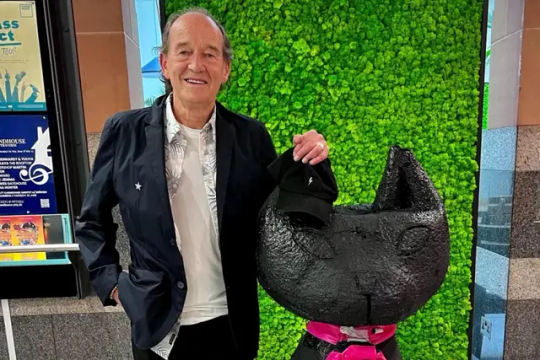


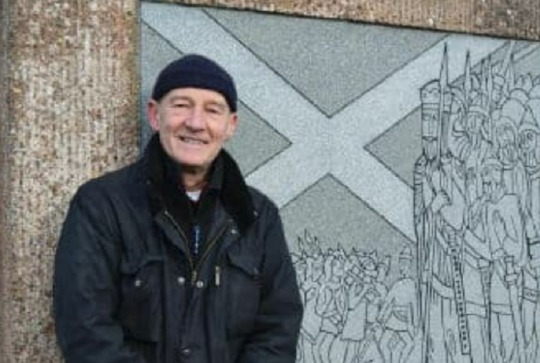
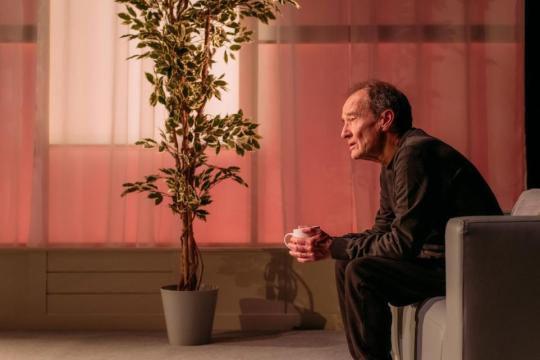
Happy 76th Birthday the excellent Scottish actor David Hayman.
Hayman, one of Scotland’s most acclaimed actors of stage and screen was born in Bridgeton, Glasgow on February 9th 1948.
David Hayman grew up as one of three children in a working class family in Drumchapel, Glasgow. Leaving school without any academic qualifications he started work as a would-be engineer at 16. One day, wearing his grease stained boiler suit, he marched into the Royal Scottish Academy of Music and Drama and announced his intention to become an actor. He still has no idea where this came from, he is basically a shy person and there was no family history of acting. He took advice and joined an amateur dramatics group and a year later was accepted to study drama and has never been out of work since.
His film and television credits are, frankly, much too numerous to list but include his superb portrayal of hard man Jimmy Boyle in “Sense of Freedom” and, of course, he is recognisable everywhere as Detective Chief Superintendent Michael Walker in Linda La Plante’s long running Trial and Retribution series.He has also starred in the hit Scottish cop drama Shetland as well as Scottish comedy shows Scotch & Wry, Rab C Nesbitt and Still Game.
Hayman has also directed numerous films and TV shows as well as regularly treading the boards in the Theatres.
Away from acting, David established his Glasgow-based charity Spirit Aid in 2001. It has gone on to become one of Scotland’s most successful small scale humanitarian organisations. He started Spirit Aid because he wanted to do a Scottish Live Aid at Hampden, but his rock stars let him down. “They were all, ‘Oh, man, I’m burned out,’ and I was thinking, ‘You’re sitting on your fat arse on your sofa with £40 million in the bank. Go and sit in a refugee camp in Afghanistan and tell me you’re burned out’. But I thought, I believe in this, I’ve got to keep going.”
He spends several months every year visiting his charity’s relief projects where he employs indigenous workers wherever possible. His fundraising operations include Operation Loo Roll, a project selling toilet paper that raised £100,000 in 2007. The charity undertakes humanitarian relief projects from Kosovo to Guinea-Bissau, Afghanistan, Sri Lanka, Cambodia, Malawi and South Africa.
Hayman is a big campaigner for a Scottish film studio, which is looking like happening soon, he says “It takes the Americans to come in and build a shed where they shoot Outlander and that’s the nearest thing we have to a film studio, think of all the movies that we’ve lost, all the money that we’ve lost all the way back to Braveheart.”
David was recently in the fab comedy from Scottish director Michael Caton-Jones, Our Ladies, “set mainly in Edinburgh a group of Catholic school girls get an opportunity to go to the capital for a choir competition, but they’re more interested in drinking, partying and hooking up than winning the competition” it is an adaptation of Scottish author, Alan Warner, of Morvern Callar fame’s third novel Sopranos, I read the book in the late 90’s it is a laugh out loud book, and the film is also very good.
Hayman was in an interesting film, My Neighbor Adolf, last year, which I haven’t got round to watching yet, set in 1960;s Brazil he plays a “lonely and grumpy” Holocaust survivor convinces himself that his new neighbour is none other than Adolf Hitler. We also saw him in the sequel Fisherman's Friends: One and All, both films get ratings of 6.2, and 6.4 on IMDB . I have just started a binge watch of Chemistry of Death, a Brit crime thriller series which is on Paramount plus. Last year David played a Chieftain in the Disney Star Wars prequal series Andor.
David won a top theatre award for his portrayal of northern Irishman, Eric, in the acclaimed play Cyprus Avenue last year, he has a couple of projects lined up, Jailbroken, an action crime thriller described as "the day before a violent criminal is due to be released from prison he receives a threatening call. Armed only with a mobile phone he must somehow save his family - and himself."And at the other end of the spectrumis a fantasy called Assassins Guild, "After the Mermaid Wars, Iliad's city is attacked by dark forces. With the city full of rancor and corruption, Death herself forms an alliance and offers Atticus, an elite fighter, the chance to return to life. This gift comes at a price."
16 notes
·
View notes
Text
𝐈𝐍𝐓𝐑𝐎 ?!
Never did an intro before LMAO SORRY IF IT’S BAD
Also first post guysss!!
My name is Sophia and I was born in brazil and my parents are both Brazilian well my dad is also half Mexican
I live in az right now but maybe we’re moving to Colorado LEGALIZED WEED FOR ME!!😝
𝐌𝐘 𝐈𝐍𝐓𝐄𝐑𝐄𝐒𝐓𝐒
I love the STURNIOLO TRIPLETS and SAM AND COLBY smmm!! There’s many other content creators I love ofc.
BIG OBX AND SHAMELESS FANN😍
If you haven’t watched those BANGERS yet I highly recommend them!!!!!!
I can’t wait for season 4! Who’s gonna watch it with meee🥰😍???
I’m a SOCCER freak it’s my favourite sport and I play it 🫶🏼 soccer players hmu😉
Fave clubs are REAL MADRID, Flamengo, Benfica, Manchester United and Galatasaray
CR7 over Messi sorry😝
I have the biggest crush on Chris Sturniolo, Carl Gallagher, Rafe Cameron, Travis Scott, NLE choppa, Neymar Jr, Diego Lainez, CR7 jr, 2pac and Michael b Jordan they are just so 😍
I listen to a lot of music but mostly to Latin and Rap I listen to so many artists that I’m just gonna mention my faves! 😋
Baby smoove, Travis Scott, Playboi Carti, Anitta, Peso Pluma, Nardo Wick, Stunna Girl, Sexy Redd, Central Cee, Bad Bunny I got soooo many more faves bro but it’s too many😭
Yup that was my intro guys🥶
I JUST GOT BRACES AND THEY HURTTTT I CANT EAT💔
#matt sturniolo#sturniolo#chris sturniolo#nick sturniolo#sam and colby#obx#rafe cameron#shameless#carl gallagher#christopher sturniolo#baby smoove#arizona#phoenix arizona#sturniolo edit
7 notes
·
View notes
Text
Thanks for tagging me, @imwritesometimes and @zerokrox-blog ! 😘 You both tagged me in essentially the same meme, but with one or two slightly different questions so I hope you don’t mind that I just combined the two instead of typing out basically the same thing twice.❤️
Relationship status - single
Favourite colour - red
Three favourite foods - Hawaiian burgers, lasagna, vanilla milkshakes
Last thing I ate - cheesy scrambled eggs and wholewheat toast (and it was delicious, I got the eggs just right)
Song stuck in my head - I went to see Bruce Springsteen in concert last week (yes, he was amazing, thanks for asking) and ever since then Glory Days and Thunder Road have been taking it in turns to take up residence in my brain, with occasional visits from Because the Night and Dancing in the Dark
Dream trip - I want to visit so many places! Denmark; British Columbia in Canada; Hawaii; Iceland; New Zealand; the Scottish Highlands; Argentina, specifically the Iguazú Falls at the border of Argentina and Brazil, but I’d also like to visit Buenos Aires. (I really have no excuse for not at least taking myself off to Scotland, or even Denmark. They’re both easily doable from here, but there always seems to be some reason I can’t or some responsibility holding me back.)
Time - 7.49 AM
Something I really want right now - for the paracetamol to kick in and get rid of the headache I currently have.
Last song - Cover Me Up by Jason Isbell
Last movie - Bad Times at the El Royale
Currently watching - Murdoch Mysteries, NCIS, NCIS: LA, CSI: Vegas, The Rookie, The Rookie: Feds, S.W.A.T., The Equalizer, and I intend to check out Poker Face when it starts here next Friday.
Currently reading - I just finished Under the Whispering Door by T.J. Klune last week and I haven’t started anything new yet, but I have a few titles lined up.
Currently playing - if this is about video games, then nothing as I’m not a gamer (unless mahjong or solitaire counts, and I very much doubt it, lol).
Currently craving - nothing really? Unless someone wants to conjure up a non-life threatening emergency to get me out of having to work a 10 hour shift tonight (which should really only be an eight and a half hour shift, but my manager is being good to himself as usual and finishing early and so he put me on the rota to start early to cover his leaving. Bastard. 😒)
Zero pressure tags - @smowkie @all-or-nothing-baby @katries @kiti-the-warrior-poet @halespecterwinchester @fireladybuckley @firemedicdiaz @foreverthemomfriend @mistmarauder and anyone else who wants to play. No pressure on anyone who doesn’t!❤️
10 notes
·
View notes
Text
June 28, 2023
There are as many ways of translating a literary text as there are translators. The act of carrying a work from one language to another — an art as much as a craft — is anything but mechanical: Translators’ choices are informed by their sensibilities, their emotional landscape, their background.
Literary translators have, however, historically received little recognition. Readers who love books that were rendered in their words often haven’t known their names, since they were not featured on the covers. Within publishing, they were frequently underpaid and given no rights or royalties for their work.
Efforts by translators and by organizations like PEN America, which recently issued a manifesto on literary translation, have brought the field greater visibility, helping to cement the rights of translators and to raise awareness of literary translation as a creative art in its own right.
For a frank discussion of the state of translation, The Times gathered a group of recognized translators:
Samantha Schnee, a translator from Spanish, is the founding editor of Words Without Borders, a digital literary magazine of international literature in English.
Allison Markin Powell, a translator from Japanese, also represents the PEN America Translation Committee on the organization’s board of trustees.
Jeremy Tiang, originally from Singapore, translates from Chinese and is also a novelist and playwright.
Mui Poopoksakul is a Thailand-born lawyer turned literary translator.
Bruna Dantas Lobato, originally from Brazil, is a literary translator from Portuguese and a writer.
This conversation has been edited for concision and clarity.
JULIANA BARBASSA: Over 50 years ago, at the first World of Translation Conference organized by PEN, Isaac Bashevis Singer said: “Translation must become not only an honorable profession, but an art. While I don’t like bloody revolutions, I would love to see a translators’ revolution.” He went on to say of translators that “in all of literature they have been the pariahs,” and to call on the conference to be “the beginning of a rebellion where ink instead of blood will be shed.”
What revolution was he alluding to there, and how much has been accomplished in the years since?
SAMANTHA SCHNEE: There are two ways to answer that question. One, translators' rights is something I think Singer was referring to. But I also think that the translator’s role as a conduit for literature in translation is equally important. To the first issue, I would say a lot of progress has been made in the last 50 years. It was the case that translators routinely were expected to grant copyright in perpetuity for their translations.
Famously, [Gregory] Rabassa’s translation of [Gabriel] García Márquez’s “One Hundred Years of Solitude” was a copyright grant, which really ignores the role of the translator as a creative aspect of the work. No two translators would ever create the same translation from the same text. So I think progress has been made in areas like that.
But I think we have a lot of progress yet to go. For example, the way I see the role of a translator today is very much as a curator. Translators are much more active in the market now: Translators are acting as scouts, in many cases acting as agents. Almost always those roles go unpaid.
I do think translators have a lot more power than certainly 50 years ago, and I would argue even 20 years ago. Translators need to keep fighting to keep those issues at the forefront.
We as an Anglophone culture are mass exporters of all sorts of culture, and we are not importing even a fraction of that. Translators play a really critical role in helping to counteract that.
BRUNA DANTAS LOBATO: In addition to wanting fair pay, wanting our art to be recognized, our names on the covers of books, I also would like to see a push away from this very academic sentiment that comes out of comp lit departments: that it’s some white person from this culture who goes into another culture and imports these artifacts.
There is this sense that it’s a transaction, and it’s one-directional. It feels like a very anthropological impulse from maybe a couple of centuries ago. I would like instead to have more of a conversation.
JEREMY TIANG: In the English-speaking world, we are enthralled with the idea of the single author. And so conversations around translations either focus entirely on the original author, rendering the translator subservient, or else talk about the translator as if the only way the translator could have agency is to go completely rogue, disregard all notions of faithfulness and assert their own version of the book at the expense of the original. The idea that translation is a collaborative process, that the author and the translator are building something together, doesn’t really get as much airtime as I would like.
BRUNA: It’s a question of authorship, right? It’s an opportunity to hold translators accountable for the work that we do. If I don’t even know who did this, how am I going to evaluate or ask the right questions?
The other thing is that the translator as author brings so much personal baggage into the work. We can’t translate outside of ourselves. I definitely use my experiences both as a writer — my knowledge of craft — and my experiences as a reader, in everything that I translate. I also bring my emotional experiences.
It means that I won’t bring unexamined biases into the work. It means that I have an opportunity to be in genuine dialogue with the work. All of that is impossible if I am erased, my identities are erased, my experiences are erased.
ALLISON MARKIN POWELL: What a translator brings to the work of doing the translation, we also bring to the works that we’re inspired to translate. Historically that was very much a white male academic’s perspective.
I’m part of a collective called Strong Women Soft Power that promotes Japanese women writers in translation. When we formed it I started looking at the numbers — who was being translated. Despite my perception that there were a lot of Japanese women writers being translated, that was actually not the case. That led me to look at what the landscape was like in Japan. And in Japan it was a much more balanced environment between male and female writers. And that wasn’t being accurately reflected in English translation.
JEREMY: I want to mention the unevenness of the playing field, which might not be apparent to people outside of the translation world.
Someone working from, say, German could quite feasibly, if they were sufficiently established, make a living simply by waiting for publishers to come to them with German books to translate. Whereas with less represented languages or regions, the translator often has to advocate for the book or it doesn’t get translated at all. Thai literature in English translation pretty much wouldn’t exist if Mui weren’t finding these books and putting them in front of publishers.
MUI POOPOKSAKUL: That plays into two points, like what Sam said earlier about the unpaid labor of translation. When I work on a book project, I follow it from start to finish. I read the books, I pick the books, I pitch the books, I translate the samples — initially I was never paid for samples. That is a real barrier to entry for a lot of people.
In terms of who gets to translate, I’m really excited by this movement to give more opportunities to heritage language speakers, translators from the countries of the literature that they’re translating from. This will really broaden the landscape of what becomes available in English.
JULIANA: Have you seen a shaping of what books are available in English because of this advocacy by translators?
SAMANTHA: Absolutely. If you think of publishing as an ecosystem, the translators are like the seed spreaders. We’re diversifying that ecosystem. There’s a fixed number of editors out there; they will have certain sensibilities and they will be limited by the market in the choices they can make. When you work with translators, you have whole other worlds opened up to you.
JEREMY: The translator is often the only person who can see both sides. The source language country might have rights agents doing good work, but they don’t know the English-language publishing world as well. The Anglophone world has well-meaning publishers who would love to do more translation, but they have no way of knowing the source language landscape. And apart from basically a few large Western European cultures which are well resourced with book scouts, in general, the translator is often the only person with a clear view of both sides.
ALLISON: If a book from a language that you work from becomes successful, do you feel like that starts to color readers’ or editors’ expectations? In Japan this has been called the [Haruki] Murakami effect. Do you have that experience?
BRUNA: I definitely have that experience a lot. I was recently advocating for a book called “The Dark Side of the Skin,” about racism and police brutality in Brazil, by Jeferson Tenório. Some of the readers evaluating it for interested editors said, “I don’t know if this is the one book about racism in Brazil that we should read. There are others that are very good.”
There’s this implication of simplicity, that if I read this one thing — I mean, how much can there really be to that culture? I’m done, you know?
JULIANA: Is there still a sense from publishers that, Oh, we have our India book for the year, we have our Japanese book for the year?
JEREMY: I’ve noticed both a kind of tokenism and a kind of herding. So I’ve had, “We have our Chinese book for the year.” But I’ve also had, during the dominance of “The Three-Body Problem,” publishers saying, “We want as much Chinese science fiction as we can get our hands on.” In both cases it’s treating books as interchangeable commodities rather than individual pieces of art that you consider on their own merits. I will say that there are more and more enlightened publishers who are able to see beyond that these days.
MUI: I haven’t had that experience, but I always fear it. After my first book, which was billed as the first Thai translation published in Britain outside of an academic press, it was like, well, are they going to want another one? I worried about that.
JULIANA: One thing I find striking is that with literature in translation, what exists in English is shaped by specific factors that are not visible to readers. Some countries, for example, fund translations from their language.
BRUNA: Publishers have such a limited budget. I’ve been really interested in books that editors said they couldn’t buy. So they will pass on it, and then instead buy a Scandinavian book or a Korean book because it got a lot of funding and they won’t have to pay out of pocket.
MUI: The playing field is definitely not level. There is some good work being done out of Anglophone countries in terms of grants, but they’re hard to come by because you’re competing with translators and translations from every language. I’ve applied for funding from Thailand a couple of times, but I have not received funding from the Thai government.
ALLISON: Despite the fact that Japanese ranks relatively high on the number of works in translation, there is actually relatively little subsidy available. None of the books that I’ve translated, or almost none of the books have really received any subsidies.
SAMANTHA: The funding tends to be quite Eurocentric, and that does have significant impact on what readers in English are offered. It’s pretty dramatic if you look at the countries that are really investing in cultural exportation.
That’s not to say that there aren’t great European writers who are worthy of being translated. There certainly are. But there are in Africa, in Asia, in Latin America as well.
ALLISON: Going back to the actual work of translation, there are a lot of interesting conversations right now about who the imagined reader is, and whether a translation should be smooth or challenging.
JEREMY: My imagined reader is myself. I translate books that I want to put out in the world because they aren’t there for me to read. And I also translate because of the process. Just as, you know, actors go after a part because it’s a great part for them and they want the experience of performing it.
BRUNA: I expect from the reader a minimum amount of curiosity, and also a bit of an ear. I want the reader to pay attention to the language, and to what I might bring from Portuguese into English. I hope they’ll get used to different voices and different accents, and appreciate all the value that’s in there. All the beauty and the language-play that’s in there, as opposed to wanting an experience that’s just going to reaffirm what they already know, who they already are.
SAMANTHA: My ideal reader is the author. I much prefer to work with an author who’s living, with whom I can have a dialogue. I’ve learned so much — not only about language, but also about the topics that the authors’ books are dealing with.
MUI: The reader I fear is the Thai reader, because they are more likely to be able to re-engineer my process. I teach at a university in Thailand, so I have students who read my translations side by side with the original. They are always sort of on one shoulder, being like, “Stay true, Mui, stay true.”
JULIANA: What brought you to this field?
MUI: Translation is just great fun, you know? The latest PEN translation manifesto emphasized how translation is a form of writing, and that for me is so true.
ALLISON: Translation is an extremely creative practice. It suits my aesthetic of creativity well. I don’t write my own work; I write translation. Working with an existing text in another language is just having different clay to mold with.
BRUNA: As a writer, I often felt like the best way for me to study any work was by translating it. It feels to my particular practice like those two are in dialogue.
But also as a person, the way I exist in the world — when I found myself as a Brazilian national in New England, suddenly my language wasn’t a part of my daily life. Translation was a way for me to put my Brazilian side and my American life in conversation, and to feel whole. So for me translation is very much a part of being truthful to who I am.
JEREMY: I grew up bilingual, biracial, I’m an immigrant, and translation is one of the few things that allow me the fluidity to explore all the areas of who I am, and not have to choose one identity or another.
#translation#Samantha Schnee#Allison Markin Powell#Jeremy Tiang#Mui Poopoksakul#Bruna Dantas Lobato#full text below the read more! if you can open the link do bc it has translator pictures
8 notes
·
View notes
Text
Your gallery dating Jimmy Pop — tour edition
I’m starting with this, I don’t have a lot of pictures of him so it will not be going very far, but if you do, oh pleeeeaase send me some!!!
I am obsessed with him you have no idea, but I am not yet comfortable writing an entire fanfiction about him. Just little preferences like that I think. 😊
Okay but if you have any idea about him also, stuff to write, like how he would act in certain situation, I haven’t quite figured him out yet so please do!!! I don’t bite 😊
——————————————————————————

You took this photo in the hotel room. It was in the middle of the night, no one was sleeping, not feeling tired. Too much excitement. It was the first night going on tour, you were all drinking, celebrating the moment, so no one was tired. You eventually went back to each other’s hotel bedroom, trying to calm down as it was very late. You took this picture when you both laid down, talking, joking and such.

On tour again, Brazil this time. You had the chance to go with them and you were very thankful. The concerts were at the end of the day, so between rehearsals you could get in tourist mode and explore the city you were in. You couldn’t be in Rio de Janeiro and not go to the statue. It resulted in this picture. James took one of you too but it ended up to be so blurry that it was useless. You teased him for days that he couldn’t take one decent picture.

One picture for every country you visited on tour. It was the first night you arrived in China (Japan? I can’t determine) . You all drove to the place where the concert would take place to get familiar and ended up exploring the city at night because you were all jet lagged. It was the most fun night you had. You were so tired that not of you could form one sentence without making a mistake, you all sounded drunk as hell, even though you weren’t (a miracle).
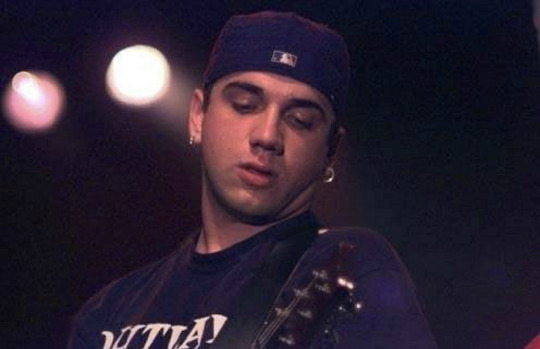
This one is on stage. Of course you’re in front, vip spot for being James’ girl. Since you took this picture you cannot live without thinking about it. You love it so much. He is so focused, he is just so hot. The cap (big weakness), it’s just small things all together. You always love seeing him doing what he loves, what he wants, just enjoying his life. And damn, he always looked sexy playing the guitar.

And here we are backstage. You put out the camera to take a picture. You were all sitting around, talking about random stuff. He laughed. “Why are you always taking pictures?” He asked jokingly. “Memories” you always answered. He smiled shyly which resulted with this picture. One of your favorite. (Again the cap omg)
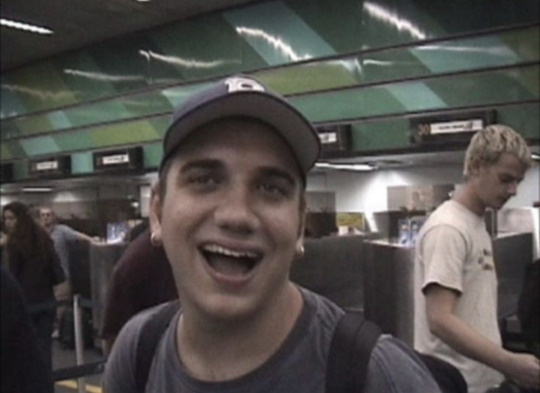
You were at airport, getting frustrated because one of your luggage couldn’t pass for whatever reason. You stayed there for hours, had to take another plane. It was late at night. But as we all know James, he is always making everyone laugh. You were holding the camera in your hand, staring at the people in front of you trying to solve the problem as quickly as possible. James jumped in front of you before making the cheesiest joke just to earn at least a smile from you. “You’re not taking a picture? That’s a memory I want to remember” he joked. You rolled your eyes. He posed like that, so you took this picture. You were going to laugh about it, just not yet.
#jimmy pop#bloodhound gang#jimmy pop x reader#Jimmy pop preferences#imagine#fanfic#oneshot#Jimmy pop one shot#Jimmy pop fanfiction#Jimmy pop fanfic#Jimmy pop imagine#Jimmy pop x y/n#jimmy pop x you#Jimmy pop x female reader
6 notes
·
View notes
Text
To cleanse ourselves of Bolsonaro, we must fight like a forest
The defeat of Brazil’s fascist president Jair Bolsonaro represents a small window of possibility. To turn it into a horizon of hope, we must act not against Bolsonarism, but for a radical relationship with life.

Yes, we know. Brazil’s far-right president Jair Bolsonaro has been defeated at the polls, and will leave power after another two months of brutalities. But he and Bolsonarism remain very much alive, supported by the votes of 58 million Brazilians, formed in the image of their messiah. And they are here among us, sharing the same Brazil. In the week after the election, we watched Bolsonaro’s followers perform Nazi salutes while singing the national anthem, carry out bizarre marching rituals dressed in the national soccer team shirt, and even solemnly chant the anthem to a tire. Why a tire? I have no idea. Bolsonarists are all around us; sometimes they even share our homes. And yet they believe it is legitimate to demand the illegitimate: the return of a military dictatorship. The question is: how are we going to live alongside them?
Because we’ll have to.
Before we contemplate this, it must be said that something extremely serious is affecting Bolsonarists. And I’m not trying to be humorous or ironic. It truly is serious. Their performances in the scenes we watched play out this week made us laugh like we haven’t for a long time in Brazil. But the facts behind the memes (a form which, by the way, should be elevated to the status of art, and have its own awards) are serious. That Bolsonarists feed on fake news is hardly a revelation. But the post-election period has revealed what falsifying reality, and believing in the falsification, does to a person’s life – and what a great mass of people doing the same can do to the life of a country. Much can be said about Bolsonarists – and it already has been. Nevertheless, it must be stated, in all seriousness, that they are sick.
Sick with a social disease that needs to be treated as such, and must be confronted by the incoming government. When faced with a fact that they couldn’t entirely falsify – the election victory of Luiz Inácio Lula da Silva, better known as Lula – Bolsonaro’s supporters lost all reason. It wasn’t just the scenes that became memes, like the guy who clung for miles to the front of a truck that had broken through one of the barricades formed by Bolsonarists demanding a coup, nor the criminal acts, like the singing of the national anthem while performing Nazi salutes, as was seen in the city of Sao Miguel d’Oeste in the southern state of Santa Catarina. It was the belief in more fake news, like cheering the arrest of Alexandre de Moraes, president of Brazil’s Supreme Electoral Court – an arrest that never happened. Or celebrating after hearing that Brazilian educator and philosopher Paulo Freire – long branded an enemy of Bolsonarism – had also been arrested (Freire died in 1997). Or spreading reports that Lula has terminal cancer, when in reality Brazil’s president-elect is doing just fine, thanks, and is preparing to star at Cop27 in Egypt.
In the coming days, weeks and months we will find out what will happen to this mass of people when reality continues to impose itself. And, in a few years, we will discover what became of the kids of those who detached themselves from reality. We care – as we should – about the children violated by the Bolsonaro government, which attacked their basic rights, slashing funds in social services while exceeding spending limits, first to benefit its supporters and allies, then to try and win the election. But perhaps we should also be concerned about the children living in the same house as adults unable to connect with reality. We can see what such people do outside their homes, but not what goes on behind closed doors. We have good reason to suspect there may be a great deal of suffering.
So what can we do? As a society, we need to remain firmly in the real world. We will respond to this divorce from reality with even more reality. And the most profound reality is life itself. The best way to fight the deadly project that Bolsonarism and its adherents represents will be to remain faithful to life. And I say this because we – those in Brazilian society who were not only horrified by, but who suffered at the hands of, this falsification, who for four years were held hostage by a criminal in power, who used the machinery of state against his own population – are also sick. Although I have no statistics to back this up, the signs are everywhere, like the fact so many people around me fell ill after the election, as though their bodies could finally collapse, now the polls had offered them a little support.
But while we can treat these physical illnesses with medicine, our sickness is much more persistent in our subjective mind. We are stuck with Bolsonarism and its daily routine of shocks and abuses. We are bound to the Bolsonarist horror like a hostage to their kidnapper, because we too were hostages. And because this was the way many of us found to survive the impossible.
It is time to break free.
Continue reading.
#brazil#politics#brazilian politics#brazilian elections#brazilian elections 2022#mod nise da silveira#image description in alt
19 notes
·
View notes
Note
i reread the post a second time and i am absolutely barking at your george characterization. it's george in a different font but it still feels like him, and the way he reacts to everything just feels so real and human— although i am also in pain thanks 😭😭 /lh
but agh. him getting that merc contract feels CATHARTIC. i can't wait to see how it gets announced and publicized and how george is gonna rub it in redbull's faces. my god if this was real i swear the entirety of the internet would EXPLODEEE - @ruszhou
*through welling tears* thanks bro
It… God it means so much to me to hear he’s still in character. Writing George and Lewis for that AU is such a mixed experience. They’re sharper, meaner, they don’t hold back, and while it’s so fun it’s also weird as hell! It’s all fun and games saying they hate fuck till you have to write the hate… but like it’s a very weird kinda hate too, it’s skin deep, George doesn’t ever hate lewis he just wants his attention. Lewis doesn’t hate George either, he’s honestly deeply impressed by his driving skill, he just wishes george would be skilled somewhere out of his way sometimes. They are the personification of “the line between love and hate is paper thin”
Redbull George au spoilers below the cut
I was actually trying to plot all that out last night on my au timeline (I know, it’s painfully nerdy, but it helps develop the fic lmao) and George is going to sign just before Brazil for the sheer “fuck you” power it gives Lewis over Red bull that weekend, but his signing won’t be announced till WELL after the season ends. They don’t want to risk George getting possibly physically retaliated against by RB before the season is over. Lewis has to impress upon George how important it is he still fight Lewis on track, they all need to play the part. George humourlessly points out that Red bull have been deliberately using his car as a test car since Hungary, so he couldn’t fight Lewis if he tried. Lewis restrains all his angry sad feels about that.
I haven’t started on my points spreadsheet yet so I can’t say how George effects the WDC standings fully, but I still intend for them to go into AD on equal points, but George DOES assist Lewis ever so slightly by not fighting him as hard as Perez did, allowing Lewis to build a better lead gap. It’ll probably go that when his car craps out he drags it round to the pits so he doesn’t risk causing Lewis a safety car. Red bull can’t accuse him of anything, they’re the one that nerfed his car after all. Latifi does what George did in irl AD and limps his car to the pits too, there’s no safety car, Lewis wins and George finally feels like he can breathe.
He can’t celebrate with Merc even though he wants to, he just has to watch from afar. Red bull can’t know till he wants them to, but he does let Lewis catch his eye and grin at him.
George doesn’t really want to go back to the Red bull booked hotel that night, they all still hate him and they’re sulking. He and max cross paths once as final speeches are given, and max shoulder checks him hard. George is used to it but he’s so fucking tired, bruised, he wants to sleep this all off. As George is leaving the paddock Lewis greets him with a PR level driver handshake and back slap, but he presses a hotel keycard into George’s hand before leaving.
It’s a clear message, or at least George thinks it is. He and Lewis haven’t slept together since around silverstone bc of what Redbull were doing to George, but George figures this is a signal. He’s not sure he really wants to have sex, he just wants to sleep, but he doesn’t want to be alone surrounded my people who are mad at him. He heads to lewis’ hotel room without even going back to his own.
Lewis of course surprises him by rocking up with champagne and something horribly unhealthy they can’t eat during the on season, tells George he figures George needs something to celebrate getting 3rd and his new seat since his team won’t do it. It’s painfully tender and domestic in a way George doesn’t really understand, he keeps looking for signals of something from Lewis, but Lewis just talks to him. When George asks why he isn’t out celebrating with his team, Lewis shrugs and says it gets old after the 6th championship. George knows he’s lying but he can’t call him on it, so he just lets himself get tipsy on hotel champagne and finally let the weight of RB off his chest.
They share a bed, it’s some king size monster bc of course it is, Lewis doesn’t have to scrimp on size or cost in his bookings. They both sleep in their underwear on opposite sides of the bed, George knows he could go back to his hotel alone but he doesn’t want to. He’ll stay here till morning, grab his stuff and get on his flight back to London. It’s fine.
They wake up tangled together because of course they do, Lewis spooned up behind George, strong and steady, holding him tight. They end up having tender, slow morning sex, face to face and embarrassingly vulnerable. A polar opposite to their last angry rough fuck, here Lewis winds a hand with his and presses slow, soft kisses into his jaw while he takes George apart. Lewis praises him for all he’s gone through and George comes so hard he might pass out. He’ll be embarrassed by it all later but right now he just tucks his head into Lewis collar and rocks lazily with his thrusts.
They don’t announce Georges move immediately. They all head back to England, and wait. They don’t want People to think George manipulated redbulls end results, or jumped ship, they want to wait until he’s ready, but then around dec 16th or so redbull tell George they want to sign his AT contract, since he kept in line for the end of the season. They think they’re being so gracious and kind for it. George says sure sure Monday? I’m needed at some family events this weekend. Christian and Marko agree bc sure, they don’t think George has anything else going on. Mercedes announce they’ll be holding a press conference on their new driver line up on Sunday, one week out of AD. Christian even ends up on camera bc itv or something want to interview him for the end of the season and to react to the Merc press news. Nobody knew who Merc would be using to replace Val, it’s been completely silent behind the scenes.
So imagine of course, Christian’s sucked lemon face caught in 4k as Toto announces Lewis and George, who walk out in their contrast matching Merc shirts. Lewis looks like the cat who caught the canary. George looks like he’s terrified but trying to grin through it when Lewis gently bumps his shoulder in support. Toto sing’s George’s praises and announces how excited they are to welcome him to the team. When asked George will say he’s excited to work with a team that puts their drivers first. Christian has to grit his teeth as the itv hosts quiz him on it.
#britcedes#gewis#4463#mark’s fic tag#asks#george russell#lewis hamilton#hoecedes#redbull george au#ruszhou
33 notes
·
View notes
Text
✦✦✦✦Kinktober/Flufftober Mashup✦✦✦✦

October 1: Falling Asleep together. Flufftober. Prompt- alt#3
Hinata Shoyo x Gender Neutral Reader
Miffy’s Mashup List. And Flufftober list.
Mentions- Hinata living in Brazil. Hinata and Reader are best friends but they haven’t confessed yet. Being at the beach and on a metro train. He thinks about giving the reader a kiss on the head but chickens out. Very tamed. He just likes you so much <3.
Word count- 917,,, (I know I said 750, but this was cute 🥺)
Notes- Sunshine, bby. No beta reader but enjoy!!!

Shoyo laid on the sand at the beach. He panted heavily after a long day of practicing. A smile was plastered on his face. His eyes stared up at the sunset sky. He felt satisfied with each day he played. The sounds of the waves sounded calmer as the sun was setting.
He closed his eyes as he tried to catch his breath. As if on cue, he heard the sounds of a bag being set down behind him. He didn’t open his eyes but he heard someone above his head, get on their knees on the warm sand. Hinata fluttered his eyes open to see your face. You were upside down from his perspective but nonetheless, you were perfect to him.
Your skin glowed softly in the soft orange sunlight. Your smile made him feel a mixture of excitement and calm. He thought you were the most precious thing ever. Seeing you the day you two first met, to this moment now. He felt the same. You were flawless.
“Had a good day of practice?” He heard your voice but he wasn’t focused on your question. He lazily nodded as he stared at your face. It was almost like he was taking in your facial features like he’d forget you if he didn’t. Hinata smiled at you. He mentally thanked himself for already being hot and sweaty. You wouldn’t be able to tell he was blushing from just admiring you and being so close to you.
Since moving to Brazil and practicing, he has grown more. Compared to you, he noticed when you offered your hand to pull him up. His hand was larger than yours. The action made him anxious to hold your hand. He never told you about his giant crush on you. He didn’t plan on it quite yet. Besides, you were here to visit him. Just a visit for two months. To see your best friend. Him, specifically. After you helped him dust off, you two walked towards the metro.
Your hotel was further from his place but he always insisted on going with you. The train ride was long and he’d rather spend the time being close to you than let you go alone. After getting on the right train, you two took your seats.
You sat closely together. The intercom announced the next stops before taking off. Tonight wasn’t so crowded. You held on to Hinata’s arm to stabilize yourself at the harsh stops. A small unintentional habit he learned to love. “Wanna listen to some music?” You asked as you held up an earbud for him.
Shoyo nodded quickly before taking it. He watched you pick a song on your phone and press play. Some rides you two would talk and laugh. And sometimes you two didn’t talk. But it was never a bad thing. Still, the poor guy used to feel awkward and tried to fill the silence. His awkwardness never fully went away but he learned to be more comfortable with himself around you. Well.. he was trying. The romantic feelings he had towards you, made it harder.
The music you played was softer and a slower tempo than the day before. Maybe you were feeling calmer? Or more relaxed? He’d have to ask you. He did keep you at the beach all day. You definitely have to be relaxed.
The rocking of the train was repetitive. He noticed out of the corner of his eye, you trying to hide your yawns. Yup. Definitely relaxed. Or you were still jet lagged. Your hold on his arm became looser and looser as you breathed softly.
Before he knew it, your head was resting against his shoulder. You had drifted off to sleep. The action would have set off his heart race if he wasn’t captivated by your contagious sleepiness. Shoyo felt his face grow hot as he blushed. You were so close and so peaceful. Hesitantly, he turned his head to press a small kiss to your temple but he stopped himself. The idea of you waking up to catch him or him bumping his face into your head if the train stopped abruptly would be humiliating. He shook his head and refocused himself to stay awake.
Your warmth and coziness rubbed off as Shoyo’s eyelids felt heavy. He was fighting sleep at every second. He needed to be awake for you. His head kept dropping from him falling asleep. Hinata begged for his sudden movements to not wake you. Thankfully… you stayed asleep but. The longer he was up, the harder it was to stay awake. He thought to himself that resting his eyes wouldn’t hurt. Just for two maybe three seconds.
You two fell asleep, leaning against each other on the train. Despite it all, you two had the best nap. Who knew taking a nap with someone you trusted and loved would make all the difference.
Thankfully, you woke up before your stop. You two exited the station, He sluggishly walked you to the hotel. With a lazy wave and a hug goodbye, Hinata headed back to the station. You thought for a moment while you watched the red head man that you grew to fall for, walk away to head back home. “Shoyo! Do you want to stay the night with me?”
The smile on his face was priceless once he turned around. His heart raced and his cheeks were rosy. He nodded at you with the happiness and sleepiness grin on his face.

#flufftober 2022#flufftober#day 1#haikyuu#hinata shoyo#hinata shoyo x y/n#hinata shoyo x reader#hinata shoyo x you#hinata x reader#hinata x y/n#hinata x you#haikyuu fluff#my fics#gender neutral reader
26 notes
·
View notes
Text
For more than a century and a half, an organization that has been referred to as “the most important agency you’ve never heard of” has been making technology global.
In its latest iteration, as the International Telecommunication Union (ITU), its global regulations now underpin most technologies we use in our daily lives, setting technical standards that enable televisions, satellites, cellphones, and internet connections to operate seamlessly from Japan to Brazil.
The next big technology may present the organization with its greatest challenge yet. Artificial intelligence systems are being deployed at a dizzying pace around the world, with implications for virtually every industry from education and health care to law enforcement and defense. Governments around the world are scrambling to balance benefits and bogeys, attempting to set guardrails without missing the boat on technological transformation. The ITU, with 193 member states as well as hundreds of companies and organizations, is trying to get a handle on that rowdy conversation.
“Despite the fact that we’re 158 years old, I think that the mission and mandate of the ITU has never been as important as it is today,” said Doreen Bogdan-Martin, the agency’s secretary-general, in a recent interview.
Founded in 1865 in Paris as the International Telegraph Union and tasked with creating a universal standard for telegraph messages to be transmitted between countries without having to be hard-coded into each country’s system at the border, the ITU would subsequently go on to play a similar role in future technologies including telephones and radio. In 1932, the agency adopted its current name to reflect its ever-expanding remit — folding in the radio governance framework that established maritime distress signals such as S.O.S. — and was brought under the aegis of the United Nations in 1947.
Bogdan-Martin, who took office in January, is the first woman to lead the ITU, and only the second American. Getting there followed months of campaigning to defeat her opponent, a former Russian telecommunications official who also worked as an executive at the Chinese technology firm Huawei, in an election that was widely billed as a battle for the future of the internet, not to mention a key bulwark for the West in the face of an increasingly assertive China and Russia within the U.N. (Bogdan-Martin also took over the ITU leadership from China’s Zhao Houlin, who had served for eight years after running unopposed twice.)
“It was intense,” Bogdan-Martin acknowledged. Ultimately, she won with 139 out of 172 votes cast.
Russia and China have been at the forefront of a competing vision for the internet, in which countries have greater control over what their citizens can see online. Both countries already exercise that control at home, and Russia has used the war in Ukraine to further restrict internet access and create a digital iron curtain that inches closer to China’s far more advanced censorship apparatus, the Great Firewall. In a joint statement last February, the two countries said they “believe that any attempts to limit their sovereign right to regulate national segments of the internet and ensure their security are unacceptable,” calling on “greater participation” from the ITU to address global internet governance issues.
“I firmly support a free and open, democratic internet,” Bogdan-Martin said. Those values are key to her biggest priority for the ITU—bringing the internet to the 2.7 billion people worldwide who still haven’t experienced it. “Safe, affordable, trusted, responsible, meaningful connectivity is a global imperative,” she said.
Getting that level of global consensus on how to regulate artificial intelligence may not be as straightforward. Governments around the world have taken a variety of approaches—and not always compatible. The European Union’s AI Act, set for final passage later this year, ranks AI applications by levels of risk and potential harm, while China’s regulations target specific AI applications and require developers to submit information about their algorithms to the government. The United States is further behind the curve when it comes to binding legislation but has so far focused on light-touch regulation and more voluntary frameworks aimed at allowing innovation to flourish.
In recent weeks, however, calls for a global AI regulator have grown louder, modeled after the nuclear nonproliferation framework governed by the International Atomic Energy Agency (IAEA). Proponents of that idea include U.N. Secretary-General António Guterres and OpenAI CEO Sam Altman, whose advanced chatbots have catalyzed much of the hand-wringing around the technology. But some experts argue that comparisons to nuclear weapons don’t quite capture the challenges of artificial intelligence.
“People forget what a harmony there was between the [five permanent members of the Security Council] in the United Nations over the IAEA,” said Robert Trager, international governance lead at the nonprofit Center for the Governance of AI. When it comes to AI regulation these days, those members “don’t have the same degree of harmony of interest, and so that is a challenge.”
Another difference is the far wider application of AI technologies and the potential to transform nearly every aspect of the global economy for better and for worse. “It’s going to change the nature of our interactions on every front. We can’t really approach it and say: ‘Oh, there’s this thing, AI, we’ve now got to figure out how to regulate it, just like we had to regulate automobiles or oil production or whatever,’” said Gillian Hadfield, a professor of law at the University of Toronto who researches AI regulation. “It’s really going to change the way everything works.”
The sheer pace of AI development doesn’t make things any easier for would-be regulators. It took less than six months after the launch of ChatGPT caused a seismic shift in the global AI landscape for its maker, OpenAI, to launch GPT-4, a new version of the software engine powering the chatbot that can incorporate images as well as text. “One of the things we’re seeing with the EU AI Act, for example, is it hasn’t even been passed yet and it’s already struggling to keep up with the state of the technology,” Hadfield said.
But Bogdan-Martin is looking to get the ball rolling. The ITU hosted its sixth annual AI for Good Global Summit last week, which brought together policymakers, experts, industry executives, and robots for a two-day discussion of ways in which AI could help and harm humanity—with a focus on guardrails that mitigate the latter. Proposed solutions from the summit included a global registry for AI applications and a global AI observatory.
“Things are just moving so fast,” Bogdan-Martin said. “Every day, every week we hear new things,” she said. “But we can’t be complacent. We have to be proactive, and we do have to find ways to tackle the challenges.”
And although total consensus may be hard to achieve, there are some fundamental risks of AI that experts say countries will be keen to mitigate regardless of their ideology—such as protection of children—that can form something of a baseline.
“No jurisdictions, no states, have an interest in civilian entities doing things that are dangerous to society,” Trager said. “There is this common interest in developing the regime, in figuring out what the best standards are, and so I think there’s a lot of opportunity for collaboration.”
6 notes
·
View notes
Text
Rewatch: Buffy the Vampire Slayer, "Angel"
Summary: Buffy and Angel grow closer, but Buffy isn’t sure whether or not Angel is an ally when his true nature is revealed.
Written by: Joss Whedon, David Greenwalt, Matt Kiene
Directed by: Scott Brazil
Aired: April 14th, 1997
WARNING: This post contains spoilers, and discussions of a couple with an age gap.
This is it! The episode where we learn more about Angel, and the episode where I spend most of my time swooning over Angel. We are officially in the second half of the season. Let’s jump in.
Recap: The episode starts with the Master deciding he is fed up with Buffy killing all of his servants, so he sends the “Three” after her to put an end to things. They attack Buffy on her way home from the Bronze, but Angel interrupts, getting injured in the process. They retreat to Buffy’s home, where Angel stays the night. The next day, Giles informs Buffy about the “Three”, stating that the Master must see her as a threat if he is sending them. Buffy returns home, where she and Angel share an intimate moment before it is revealed that Angel is a vampire. While discussing it the next day, Giles does some research where he finds tellings of a vampire named “Angelus” who was a vicious killer, but has since exiled himself from other vampires. That night, Buffy and Willow are studying in the library and Darla shows up at Buffy’s house. Darla attacks Joyce, leaving her unconscious in Angel’s arms as Buffy arrives. Joyce is rushed to the hospital and Buffy decides to go after Angel. They face off at the Bronze, while Angel reveals that he was cursed with a soul by Romani people about a hundred years before. Darla shows up, and she and Buffy fight before Angel stakes Darla, killing her. The Master mourns her loss while Angel and Buffy reconcile and kiss again at the Bronze the next night.
Overall Thoughts: I loved this episode. As someone who grew up watching Buffy, this is one of the most memorable episodes in the series, because of what it establishes.
First, I really enjoyed the Master in this one. He made me think about what makes a good villain for this show. He’s unique, evil but strangely charismatic, and while we already know his motive, he has clearer motive than some of the future Big Bads. Technically this is a characterization note, but the way Mark Metcalf portrays the Master in this episode (maybe in previous episodes but I’m just noticing it) is reminiscent of the Grinch played by Jim Carrey, and it makes me wonder if Carrey took any inspiration from this role when he was the Grinch.
There are some discrepancies that I have to mention. Primarily, in the scene where Angel and Buffy seek shelter in her house, Angel mentions that vampires can’t come in uninvited. This is something that rings true throughout the series, but the moment is a little undercut when you consider moments before that, one of the vampire’s hands finds it’s way into Buffy’s house. This could be because they haven’t figured out how they want that to look visually, or it could be a simple mistake. Another thing, in the scene where Darla comes to visit Angel, she opens his curtains to let in light. Angel, and Darla, set in the sun for a significant amount of time, and while Angel does flinch away, neither of them are harmed.
The age gap, paired with what I know about Buffy and Angel’s relationship, makes this episode hard for me. It’s strange to watch them and want them to be together, especially when I know Angel is two hundred and some change years older than Buffy. It’s also weird when Angel tries to set boundaries with Buffy, yet he has spent an expanse of time watching her, without her knowledge, from afar. That part also makes the scene where Buffy thinks he read her diary even more uncomfortable.
Overall, it’s a great episode, despite its flaws. It gives us an insight into Angel, who is one of the most compelling characters in the show so far. I can’t wait to see more.
Fashion Corner/Costuming: I don’t have many comments so I’ll make this brief. Angel’s clothing in this episode is great, it’s very attractive. I know eventually his wardrobe gets darker and he starts wearing sweaters and stuff but he looks very good right now, so I’m not complaining.
I’m also tired of Darla dressing like a school girl. It was fine when she was trying to come off younger to seduce Jesse, but now it’s old and creepy.
Characterization: With every episode that I watch Willow pine after Xander, it makes it harder to watch. I don’t think they would be a good couple, but it makes me so sad to watch Willow absolutely adore Xander and him be oblivious to it.
Angel in this episode was so compelling and charming, I wanted to know more about him. I almost wish they don’t make him broody later on, I like how he is now. He’s the type of guy I’d go get coffee with and let him walk me home in this episode, where later he’s attractive and charming but more in a very mature, almost paternal way.
Facts: This is not the last time we see Darla, as she will become a key character in season three of Angel.
This is the first episode we see Buffy use a crossbow.
Quotes: ”Angel? I can just see him in a relationship: ‘Hi honey, you’re in grave danger. See you next month!’” -Buffy Summers
Apocalypse Count: 1
Final Notes: Feel free to leave any comments, suggestions, or questions in the ask box!
4 notes
·
View notes
Photo
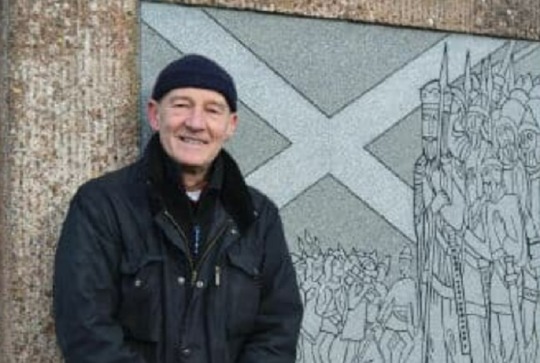
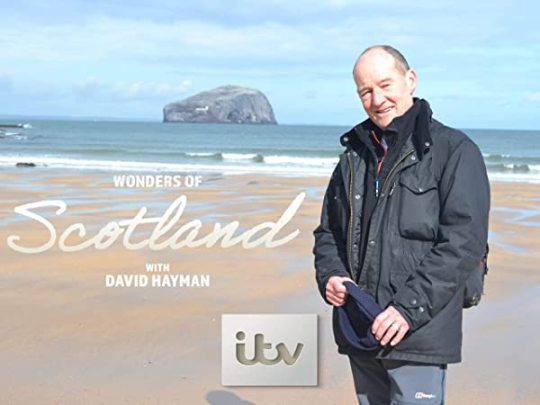
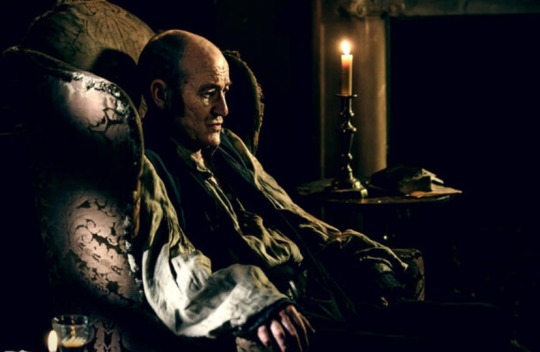


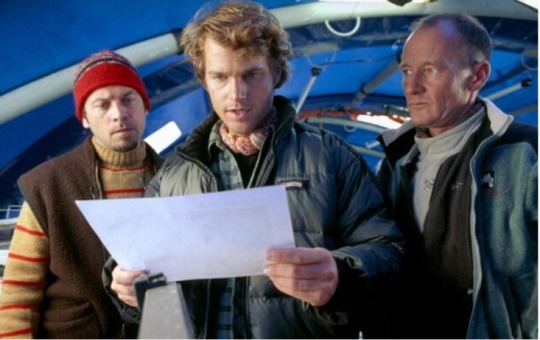
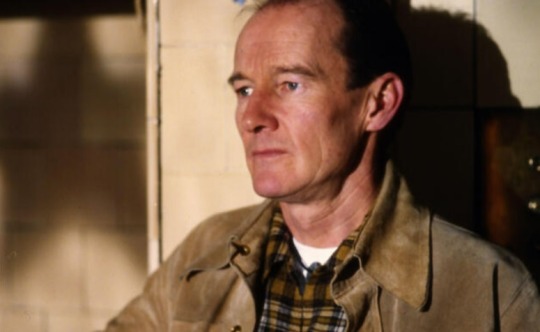
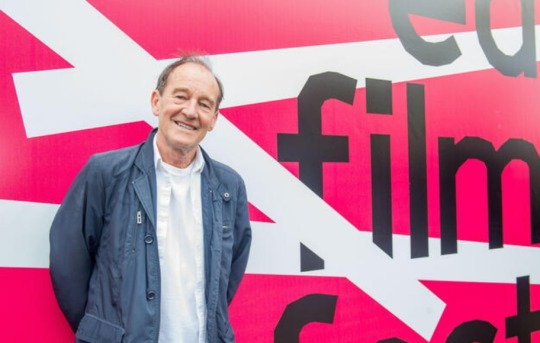
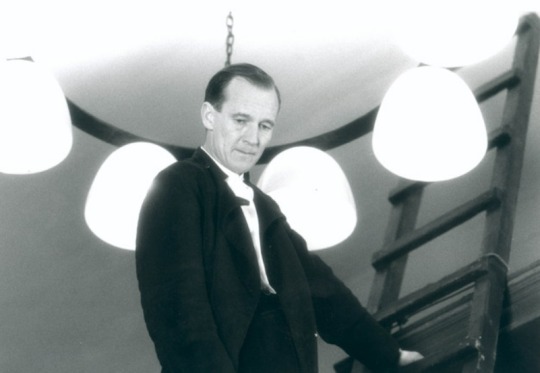


Happy 75th Birthday the excellent Scottish actor David Hayman.
Hayman, one of Scotland’s most acclaimed actors of stage and screen was born in Bridgeton, Glasgow on February 9th 1948.
David Hayman grew up as one of three children in a working class family in Drumchapel, Glasgow. Leaving school without any academic qualifications he started work as a would-be engineer at 16. One day, wearing his grease stained boiler suit, he marched into the Royal Scottish Academy of Music and Drama and announced his intention to become an actor. He still has no idea where this came from, he is basically a shy person and there was no family history of acting. He took advice and joined an amateur dramatics group and a year later was accepted to study drama and has never been out of work since.
His film and television credits are, frankly, much too numerous to list but include his superb portrayal of hard man Jimmy Boyle in “Sense of Freedom” and, of course, he is recognisable everywhere as Detective Chief Superintendent Michael Walker in Linda La Plante’s long running Trial and Retribution series.He has also starred in the hit Scottish cop drama Shetland as well as Scottish comedy shows Scotch & Wry, Rab C Nesbitt and Still Game.
Hayman has also directed numerous films and TV shows as well as regularly treading the boards in the Theatres.
Away from acting, David established his Glasgow-based charity Spirit Aid in 2001. It has gone on to become one of Scotland’s most successful small scale humanitarian organisations. He started Spirit Aid because he wanted to do a Scottish Live Aid at Hampden, but his rock stars let him down. “They were all, ‘Oh, man, I’m burned out,’ and I was thinking, ‘You’re sitting on your fat arse on your sofa with £40 million in the bank. Go and sit in a refugee camp in Afghanistan and tell me you’re burned out’. But I thought, I believe in this, I’ve got to keep going.”
He spends several months every year visiting his charity’s relief projects where he employs indigenous workers wherever possible. His fundraising operations include Operation Loo Roll, a project selling toilet paper that raised £100,000 in 2007. The charity undertakes humanitarian relief projects from Kosovo to Guinea-Bissau, Afghanistan, Sri Lanka, Cambodia, Malawi and South Africa.
Hayman is a big campaigner for a Scottish film studio, which is looking like happening soon, he says “It takes the Americans to come in and build a shed where they shoot Outlander and that’s the nearest thing we have to a film studio, think of all the movies that we’ve lost, all the money that we’ve lost all the way back to Braveheart.”
David was recently in the fab comedy from Scottish director Michael Caton-Jones, Our Ladies, “set mainly in Edinburgh a group of Catholic school girls get an opportunity to go to the capital for a choir competition, but they’re more interested in drinking, partying and hooking up than winning the competition” it is an adaptation of Scottish author, Alan Warner, of Morvern Callar fame’s third novel Sopranos, I read the book in the late 90’s it is a laugh out loud book, and the film is also very good.
Hayman was in an interesting film, My Neighbor Adolf, last year, which I haven’t got round to watching yet, set in 1960;s Brazil he plays a “lonely and grumpy” Holocaust survivor convinces himself that his new neighbour is none other than Adolf Hitler. We also saw him in the sequel Fisherman's Friends: One and All, both films get ratings of 6.2, and 6.4 on IMDB . I have just started a binge watch of Chemistry of Death, a Brit crime thriller series which is on Paramount plus. Last year David played a Chieftain in the Disney Star Wars prequal series Andor.
18 notes
·
View notes
Note
as if the antony situation couldnt get any worse, there is now a third woman
just lock him up and throw away the keys
tw for everything re antony under the cut
three women have come out and said antony has abused them and united still haven’t done anything and yet brazil dropped antony as soon as it was all announced u kno doing the right thing n all
and given the fact that ten hag was fine w overmars and open to greenwood returning i’m not surprised in the slightest he has let antony to continue playing and not said anything
honestly this club is such a mess and disgusting mess too it makes me sick to my stomach knowing that club i’ve grown up loving and adoring is like this
2 notes
·
View notes
Note
I haven’t been very impressed with England yet, Australia is going to be a though match…
Also how hard is it for the future king of Australia who is a self proclaimed football fan to send a little congratulations, I thought they learned from the debacle before the men’s wc
in all honesty, I am petty and haven't kept up with this world cup as closely since brazil got eliminated so I don't know how well they have been playing BUT australia winning at home would be peak cuteness, I'd love that for them <3
I agree buuuut one could argue he's sending congratulations to england as president of the FA, not an english prince
2 notes
·
View notes